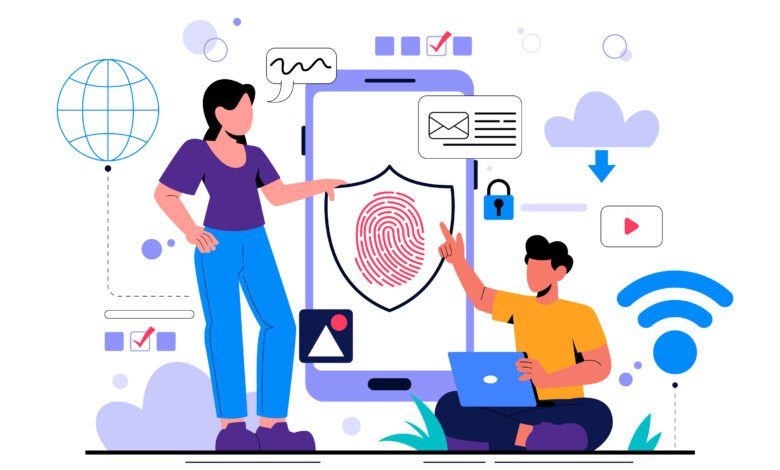
In today’s digital world, identity verification is a growing concern. With rising cyber threats and data breaches, traditional methods like passwords and centralized databases are no longer secure. Crypto tokens are emerging as a game-changer in digital identity verification.
These tokens, powered by blockchain, offer a decentralized, secure, and efficient way to manage identities. Unlike traditional systems, they give users control over their data. This shift is reshaping industries and reducing fraud. Let’s explore how crypto tokens are transforming digital identity verification.
The Problems with Traditional Identity Verification
Current identity verification systems rely heavily on centralized databases. Governments, banks, and businesses store personal data in large servers. These systems have major flaws:
- Security risks – Centralized databases are prime targets for hackers. A single breach can expose millions of identities.
- Privacy concerns – Users have little control over their data. Companies collect, store, and often sell personal information.
- Inefficiency – Verifying identity takes time and effort. Users need to go through multiple steps to prove who they are.
- Fraud and duplication – Identity theft is a major issue. Criminals can steal or forge documents to bypass verification.
These issues call for a better system. Crypto tokens, built on blockchain, provide an innovative solution.
How Crypto Tokens Solve Identity Challenges
Crypto token development is changing how digital identity is verified. These tokens work as unique digital assets stored on a blockchain. Each token represents verified identity data. Since blockchain is decentralized, no single authority controls the information.
Here’s how crypto tokens improve identity verification:
1. Decentralization Increases Security
Unlike traditional databases, crypto tokens are stored on a distributed ledger. This removes a central point of failure. Even if one node is attacked, the rest of the network remains secure. Hackers can’t alter or delete data easily.
2. User Control and Privacy
With crypto tokens, users own their identity. They decide what information to share and with whom. This is possible through Self-Sovereign Identity (SSI). Instead of handing over sensitive data, users share only necessary details using their token.
For example, when opening a bank account, instead of sharing a full ID document, a token can verify that the user is above 18. The bank receives confirmation without accessing personal information.
3. Reducing Identity Fraud
Since crypto tokens are unique and verifiable, they prevent identity fraud. Blockchain records every token transaction, ensuring transparency. No one can duplicate or forge tokens. This makes it harder for criminals to create fake identities.
4. Faster Verification Process
Traditional identity checks take time. Banks, employers, and governments verify documents manually. Crypto tokens automate this process. Smart contracts can instantly verify and approve identities. This reduces waiting times for customers and businesses.
5. Interoperability Across Platforms
A major challenge in identity verification is that different organizations use different systems. Crypto tokens enable a unified identity system that works across multiple platforms. A token issued by one entity can be verified by another without the need for re-verification.
For example, a government-issued identity token can be used to access healthcare, banking, and online services without multiple logins and approvals.
The Role of Token Development Companies in Identity Verification
A token development company plays a crucial role in building secure and scalable identity solutions. These companies specialize in creating blockchain-based identity tokens that meet industry standards.
Here’s how they contribute to digital identity verification:
1. Developing Custom Identity Tokens
Every industry has different identity needs. A financial institution may require Know Your Customer (KYC) verification, while an online service may need simple login authentication. A token development company designs tokens to meet these specific needs.
2. Ensuring Security and Compliance
Building an identity token requires strong security measures. Token developers use cryptographic encryption to protect user data. They also ensure compliance with regulations like GDPR and KYC laws to prevent legal issues.
3. Integrating Smart Contracts
Smart contracts automate identity verification. A token development company implements these contracts to ensure seamless transactions. This eliminates the need for third-party verification services.
4. Enabling Multi-Blockchain Compatibility
Different industries use different blockchain networks. Some prefer Ethereum, while others use Hyperledger or Binance Smart Chain. A good token development company ensures that identity tokens work across multiple blockchains.
5. Providing Ongoing Support and Updates
The digital identity space is constantly evolving. Token developers provide updates to improve security, add new features, and ensure compatibility with changing regulations.
Real-World Use Cases of Crypto Tokens in Identity Verification
1. Banking and Finance
Banks use identity tokens to simplify customer onboarding. Instead of uploading multiple documents, users share a verified token. This speeds up KYC processes and prevents fraud.
2. Healthcare
Hospitals and clinics use crypto tokens to store patient records securely. Patients control access to their data, reducing the risk of medical identity theft.
3. Travel and Immigration
Governments are exploring digital passports powered by blockchain. Crypto tokens can store travel history and visa information, making border control faster and more efficient.
4. Online Services and E-commerce
Websites and apps use crypto tokens for login authentication. Users no longer need to remember multiple passwords. A single token can provide secure access across platforms.
Challenges in Adopting Crypto Tokens for Identity Verification
While crypto tokens offer many benefits, challenges remain:
- Regulatory Uncertainty – Governments are still developing laws for blockchain-based identity systems.
- Adoption Barriers – Businesses need time to transition from traditional verification methods to crypto tokens.
- Technical Complexity – Implementing blockchain-based identity solutions requires expertise and investment.
Despite these challenges, the future of identity verification is moving towards decentralization. With growing concerns about privacy and security, crypto token development is expected to play a major role in identity management.
The Future of Crypto Tokens in Digital Identity
As best blockchain technology matures, identity tokens will become more widespread. Governments, banks, and businesses will adopt these solutions to improve security and efficiency.
Decentralized identity systems will reduce fraud, speed up verification, and give users control over their personal data. A token development company will play a key role in making these solutions accessible and secure.
The shift to blockchain-based identity verification is just beginning. In the coming years, crypto tokens will redefine how we prove our identity online. The future is decentralized, secure, and user-controlled.



